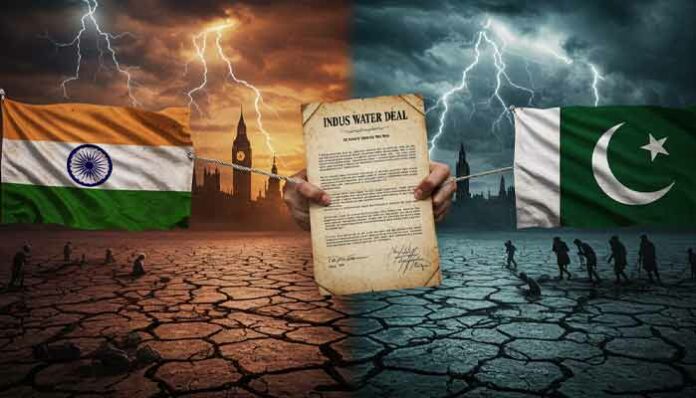Members of the British Parliament have called on India and Pakistan to stick to the Indus Water Deal, highlighting how crucial it is to maintain cooperation over shared water resources, especially during these tense times in the region.
While addressing the British Parliament, James Frith, MP for Bury in Greater Manchester, voiced his deep concern about the rising strain between India and Pakistan. He pointed out the risks such tensions could bring to the region and emphasized the importance of finding peaceful ground. Frith ended his remarks by calling on both countries to act with care and responsibility for the sake of long-term peace.
Speaking in Parliament, he pointed out that many of his constituents have family members living in areas like Azad Kashmir, Mirpur, Kotli, and Gujrat. The growing fear of conflict is deeply troubling for these families and has led to widespread concern within the community. He ended by calling for peace to reduce the distress affecting so many people.
Frith acknowledged the British government’s commitment to supporting a ceasefire. He stressed the need for the UK to continue playing an active and positive role in the region, given its strong historical connections. He concluded by calling for ongoing diplomatic efforts to achieve lasting peace.
In his speech, he firmly stated that water should not be made a matter of politics. He went on to emphasize the critical need to safeguard agreements like the Indus Water Deal for the well-being of all involved.
David Lammy, the Foreign Secretary, responded by recognizing the importance of the issue. He highlighted that over three million people in the UK have family roots in India and Pakistan, making the matter even more significant.
Keep Reading: India’s Latest Decision on Indus Waters Agreement Could Bring New Issues
In his remarks, he revealed that he has had four discussions with leaders from both India and Pakistan since the crisis began. He also stays in regular communication with influential countries like Saudi Arabia and the UAE. His efforts aim to reduce tensions and bring about a peaceful resolution.
The UK has called for both nations to uphold their current agreements, especially the Indus Water Deal. It also urged them not to use water access as a bargaining chip. The UK emphasized the need to keep essential resources separate from political tension.
Often called the Sindh Tas Agreement, the Indus Waters Deal was officially suspended by India as part of a firm political move. Following this step, the government instructed all Pakistani nationals in the country to leave within 48 hours. The action reflects rising tensions and a significant shift in regional diplomacy.
On Wednesday, the Indian foreign ministry announced the closure of the Attari and Wagah borders. As a result, Pakistani nationals can no longer travel to India under the SAARC visa exemption. This decision adds a new layer to the ongoing border control measures.
Speaking in New Delhi, India’s senior diplomat Vikram Misri announced that India would immediately suspend the 1960 Indus Waters Deal. This move marks a major shift in India’s approach to the treaty.
The Indian foreign ministry confirmed it would bring all its defense attachés back from Islamabad. This move reflects India’s ongoing shift in relations with Pakistan.
A deadly attack struck Pahalgam, a renowned tourist spot in the stunning mountainous region of Indian-occupied Jammu and Kashmir. The incident killed at least 26 people, intensifying growing concerns about safety in the area.
The allegations lacked credible evidence. They quickly spread through Indian media and social media accounts linked to the RAW intelligence agency, further intensifying tensions.
Some parties framed the incident as one driven by religious hostility. They claimed the attackers deliberately targeted non-Muslim tourists. This narrative complicated the situation and fueled divisive opinions.

